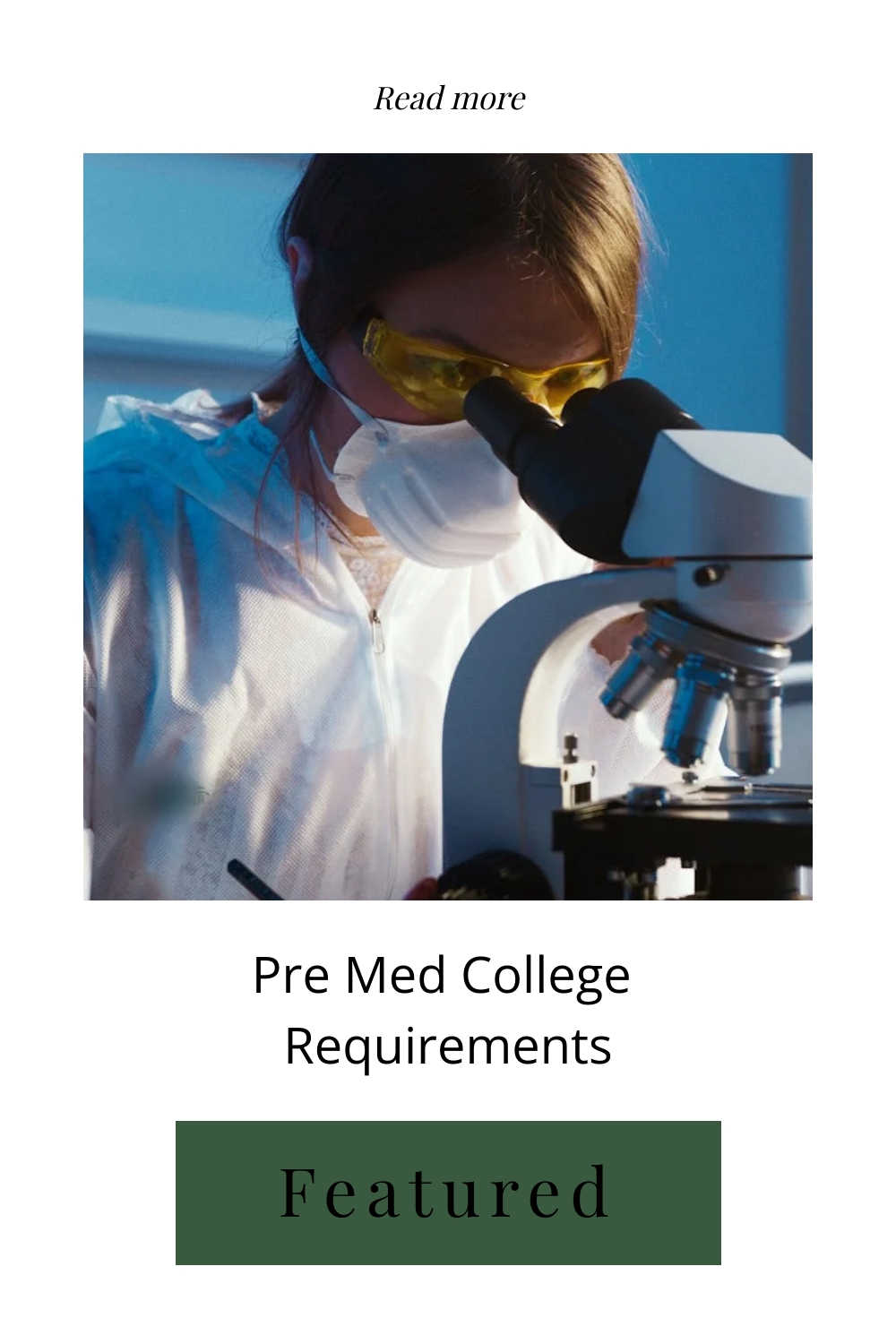Embarking on the journey to become a doctor is both exciting and demanding. One of the first steps is completing your pre-med requirements during your undergraduate years. Here’s a comprehensive guide to help you understand what you need to do to prepare for medical school.
In this post:
- 1. Choosing the Right Major
- 2. Core Coursework Requirements
- 3. Gaining Clinical Experience
- 4. Engaging in Research
- 5. Extracurricular Activities
- 6. Maintaining a Competitive GPA
- 7. Preparing for the MCAT
- 8. Seeking Letters of Recommendation
- 9. Crafting a Compelling Personal Statement
- 10. Applying to Medical School
- Conclusion
1. Choosing the Right Major
While there’s no specific major required for pre-med students, most choose majors in the sciences, such as Biology, Chemistry, or Physics. These majors cover many of the prerequisites needed for medical school. However, students can major in any field as long as they complete the required coursework.
2. Core Coursework Requirements
Medical schools have a set of prerequisite courses that all applicants must complete. These typically include:
- Biology: Two semesters with lab
- General Chemistry: Two semesters with lab
- Organic Chemistry: Two semesters with lab
- Physics: Two semesters with lab
- English: Two semesters
- Mathematics: At least one semester of Calculus or Statistics
- Biochemistry: Often required or highly recommended
These courses provide the foundational knowledge necessary for the Medical College Admission Test (MCAT) and for the medical school curriculum.
3. Gaining Clinical Experience
Medical schools look for applicants with hands-on experience in the medical field. Volunteering at hospitals, shadowing doctors, or working in healthcare settings can provide valuable insights and strengthen your application.
4. Engaging in Research
Participation in scientific research demonstrates your ability to engage in critical thinking and contribute to the advancement of medical knowledge. Many pre-med students work in research labs during their undergraduate years.
5. Extracurricular Activities
Medical schools seek well-rounded applicants. Engaging in extracurricular activities such as leadership roles in student organizations, community service, and other interests can make you a more attractive candidate.
6. Maintaining a Competitive GPA
A strong academic record is crucial for medical school admissions. Aim for a GPA of 3.5 or higher, especially in your science courses. Consistently high grades demonstrate your ability to handle the rigorous coursework in medical school.
7. Preparing for the MCAT
The MCAT is a standardized exam required for admission to medical schools in the United States. It tests your knowledge of the natural, behavioral, and social sciences, as well as your critical thinking and problem-solving skills. Plan to take the MCAT after completing your prerequisite courses and dedicate several months to thorough preparation.
8. Seeking Letters of Recommendation
Strong letters of recommendation from professors, employers, or healthcare professionals who know you well can significantly bolster your application. These letters should highlight your academic abilities, work ethic, and suitability for a career in medicine.
9. Crafting a Compelling Personal Statement
Your personal statement is an opportunity to share your motivations for pursuing a career in medicine, your experiences, and your future goals. It should be well-written, reflective, and genuine.
10. Applying to Medical School
The application process for medical school is rigorous. Start preparing your application materials early and be mindful of deadlines. The American Medical College Application Service (AMCAS) is a centralized application processing service for applicants to medical schools in the United States.
Conclusion
Preparing for medical school requires careful planning, dedication, and hard work. By fulfilling the pre-med requirements, gaining relevant experience, and excelling academically, you’ll be well on your way to a rewarding career in medicine. Remember, each step you take brings you closer to your goal of becoming a doctor.





